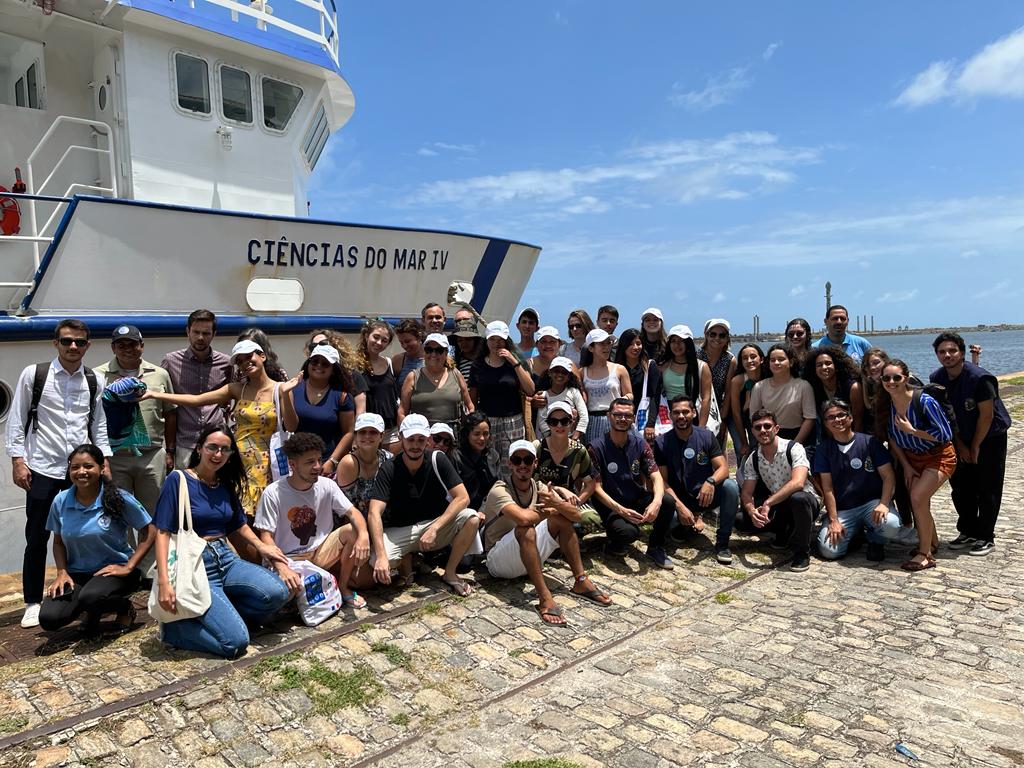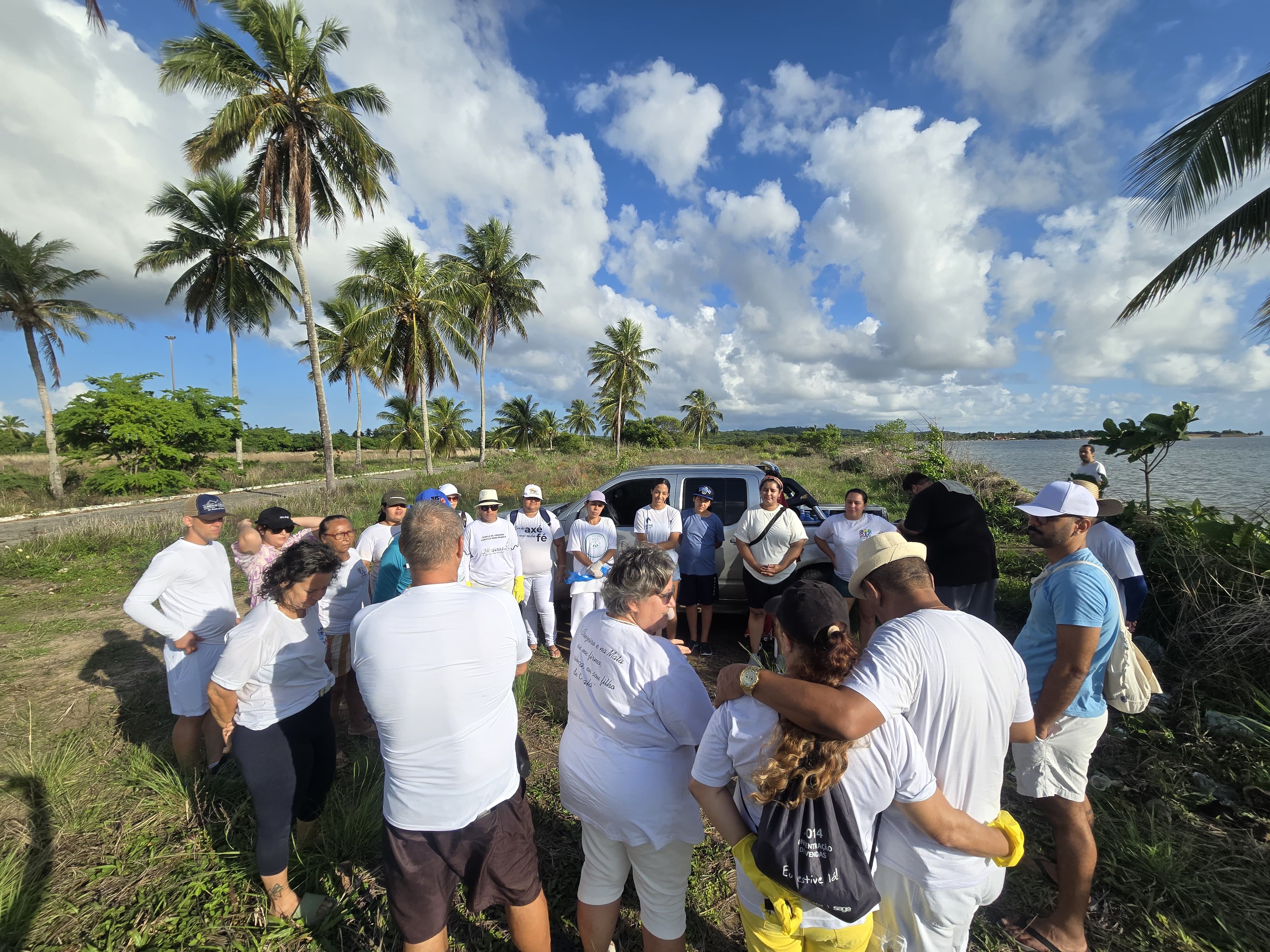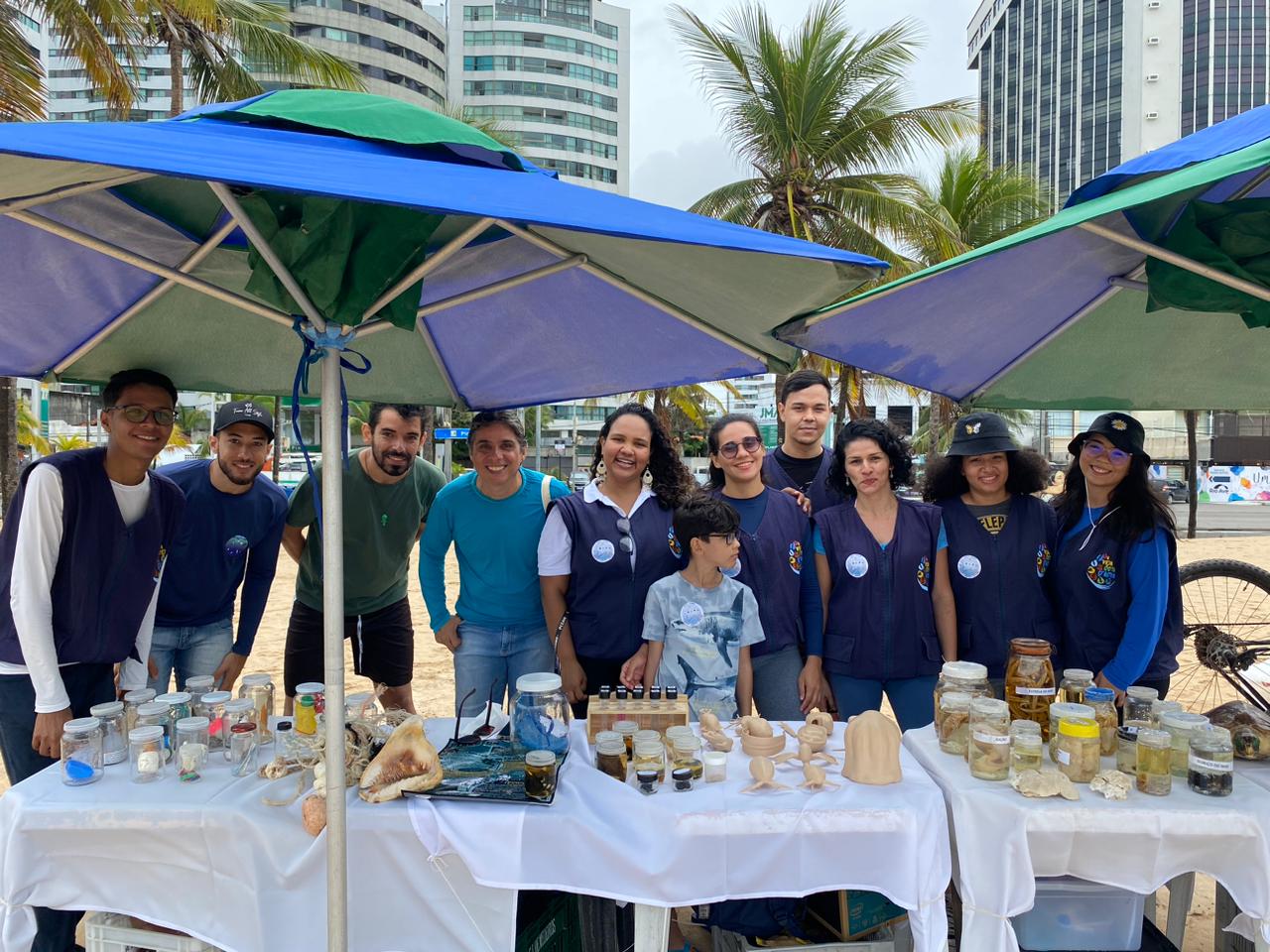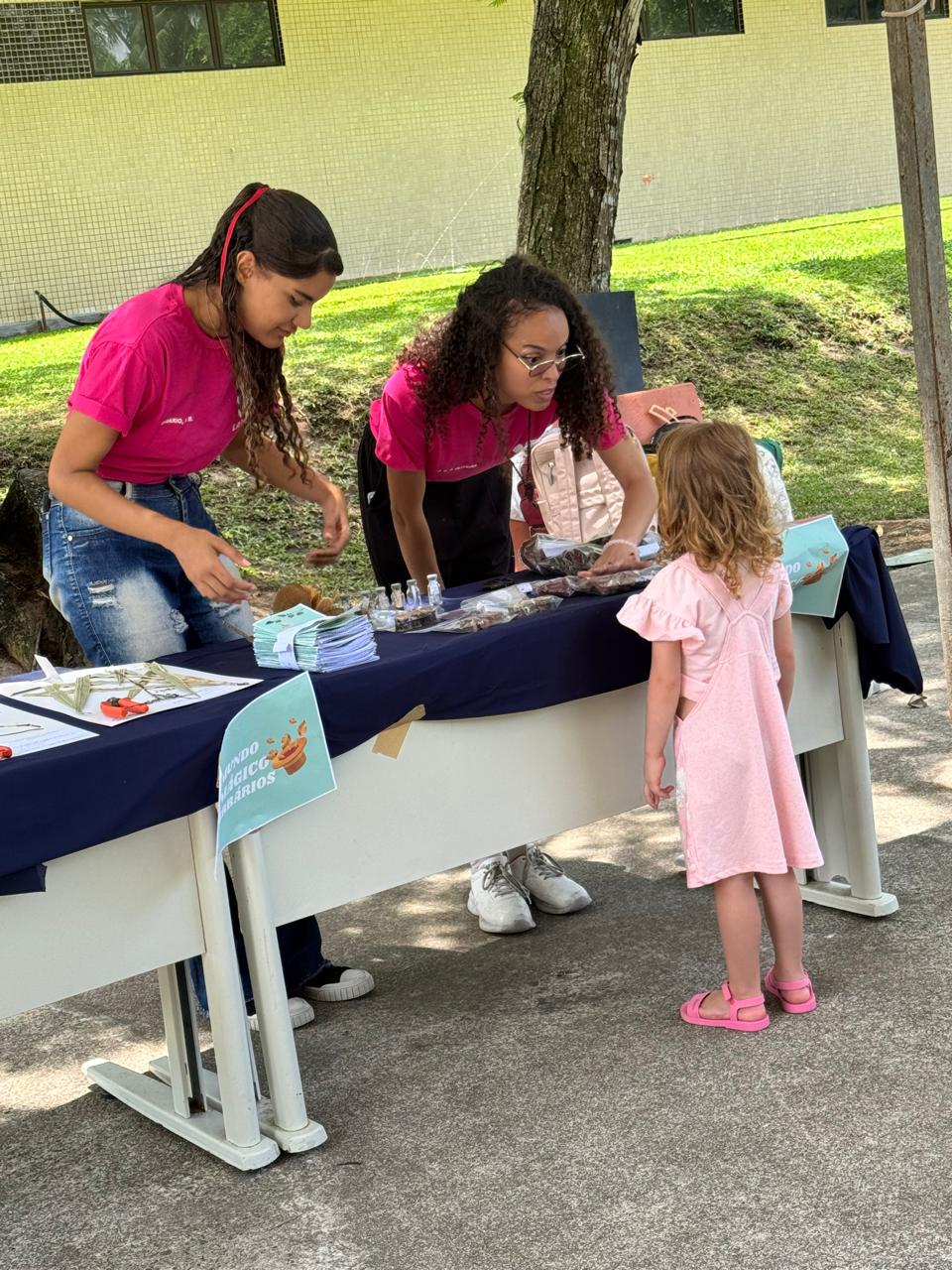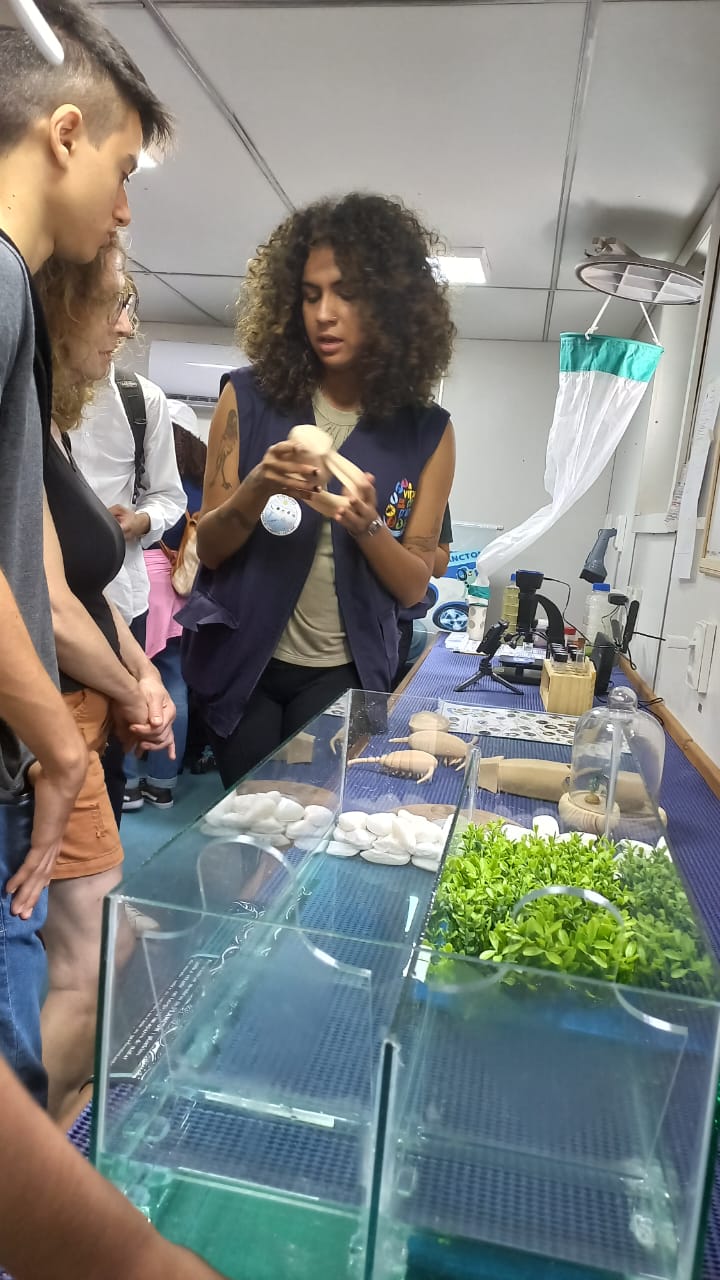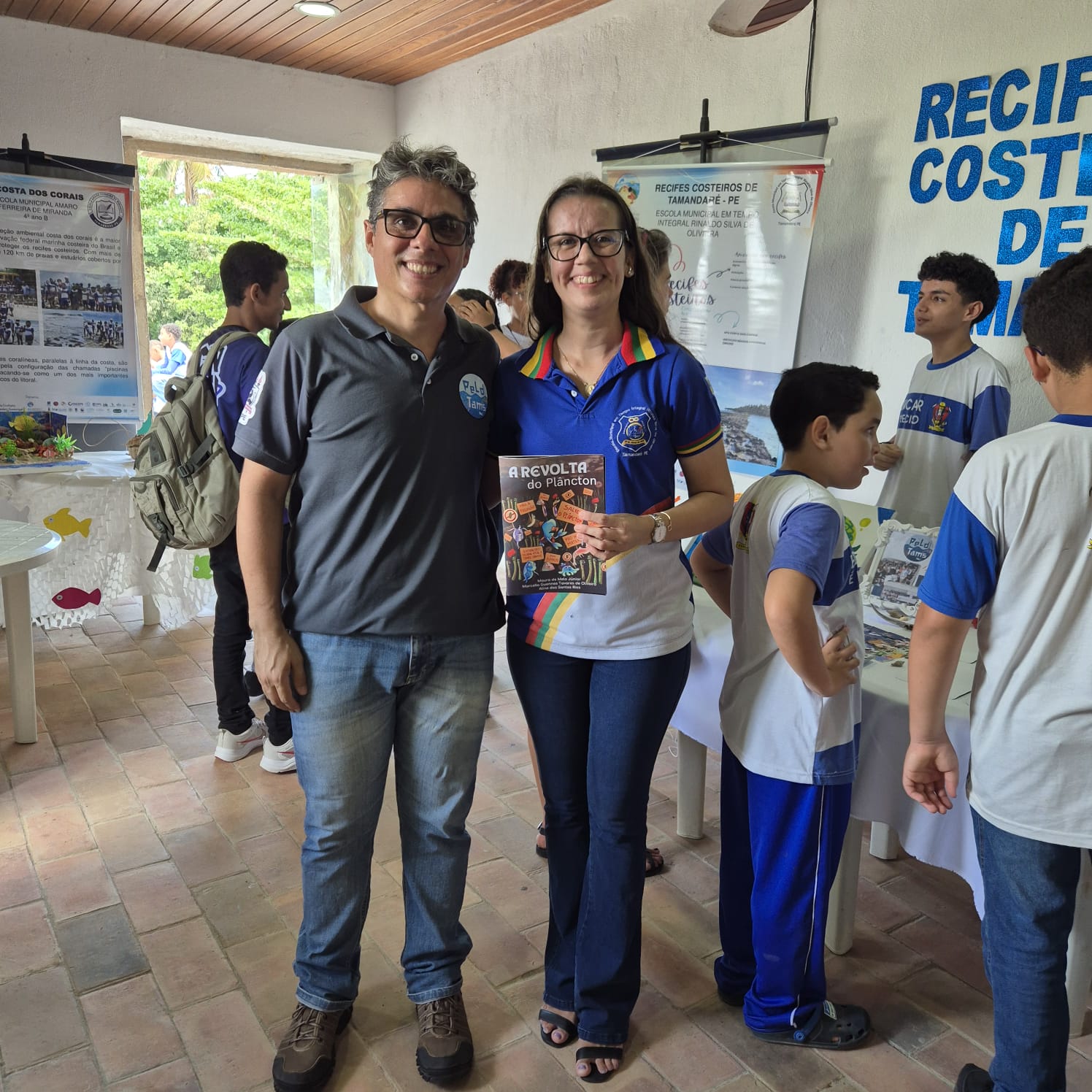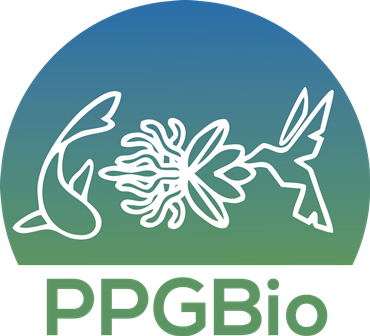University Extension Projects
The faculty and students of the PPGBio program are actively involved in extension projects, especially those focused on environmental education and scientific outreach. Between 2021 and 2024, 24 projects were developed—one third of them funded by agencies such as CNPq, FACEPE, and UFRPE. There were also actions carried out within research projects and in partnership with organizations like Instituto Coral Vivo, the TAPIOCA Project, and the Boticário Group Foundation.
In our program, students are required to carry out a "social defense" linked to their dissertation or thesis, encouraging their active engagement in extension activities, supported by courses such as “Special Topics in Extension.”
Below, we list some of the main ongoing projects so you can learn more about them:
-
Project H2O - Humanity, Skills, and Observation: Exploring water in science education in basic education (CNPq)
-
Life in a Drop of Water and the Power of Microscopy in Basic Sciences (FACEPE)
-
Life in Water, Life on Earth (FACEPE)
-
Life in a Drop of Water and Microscopic Diversity in the Biomes of Pernambuco (FACEPE)
-
Tides of Knowledge: Dissemination of invisible coastal ecosystems in the state of Pernambuco (FACEPE)
-
Angiomar, Conserving the Ecosystem, Protecting the Manatee (BEXT-UFRPE) Instagram
-
One Health in Schools: The impact of parasites, microplastics, and oil on the health of organisms and ecosystems (BEXT-UFRPE)
-
In the Waters of One Health (BEXT-UFRPE) Instagram
-
Mini-Museum of Animal Life: A pedagogical space to foster scientific literacy in science and the environment, with an emphasis on zoology (BEXT-UFRPE) Instagram
-
CovidAmbiental: Scientific outreach during the pandemic
-
Food Security after the Oil Spill Accident: Ensuring socio-environmental health on our coast
-
Darwin Day, Newborn Screening (Heel Prick) Test
-
From the Classroom to the World: Promoting biodiversity through the internet
-
Palmeira Science – Scientific Outreach and Communication Instagram
-
Girls in Science and Female Scientific Empowerment through Oceanography and Limnology
-
Biodiversity in Parks and Schools: Raising awareness of the diversity of living beings and ecosystems in society
-
COMMAR: Permanent and Traveling Exhibition of the Oceanographic Collection "Monitor Mônica Madureira" of the UFRPE Department of Biology Instagram
-
Antese Workshop: Botany for entrepreneurs
-
PHYSALIS Outreach Project Instagram
-
From Rural to the Countryside, Flying with the Bees
-
The Magical World of Herbaria
Social Inclusion Actions
Several initiatives have been carried out in public schools in the city of Recife and in municipalities in the interior (more than 20 schools), as well as in public spaces such as squares, parks, and beaches, and during events such as the Northeastern Animal Exhibition and the National Science and Technology Week. Students and faculty members were also involved in beach cleanup efforts, both after the oil spill that impacted the northeastern coast of Brazil and during solid waste collection activities.
Actions were carried out at Dois Irmãos State Park, the Northeastern Animal Exhibition, public schools in Recife and in 20 municipalities across the Northeast, Riomar Shopping Mall, public squares, beaches, the Recife Botanical Garden, the UFRPE Mini-Museum of Animal Life, the UFRPE Entomological Collection, on social media, and in TV and radio interviews.
In addition to promoting outreach in public spaces, PPGBio also welcomes students and the general public to UFRPE. One of the highlights of this four-year period was the creation of the Mini-Museum of Animal Life (Instagram). This educational space was created to foster scientific literacy in science and the environment. It receives hundreds of students every semester and also conducts traveling exhibitions during school visits throughout Pernambuco. The PPGBio faculty members Carolina Liberal and Mauro Melo coordinate the mini-museum.
If you'd like to learn more about these actions and projects, check out some of the reports and interviews with PPGBio students and faculty:
-
From Mud and Chaos to Sustainability in the Mangroves – AlgoMais
-
3D Printers Restore Coral Reefs in Porto de Galinhas – Cultura UOL
-
Invasive Coral Species Threatens Biodiversity on Pernambuco's Coast – G1
-
Crabs Found Dead After Heavy Rains in Pernambuco and Paraíba – G1
Partnerships and Connections with Public and Private Sectors
The permanent faculty members of PPGBio are actively involved in committees and commissions of funding agencies, public institutions, scientific societies, and non-governmental organizations (NGOs), reflecting the program's strong commitment to supporting public policies and actions related to critical environmental issues.
Some examples include Professor Geraldo Moura, who serves as the Scientific and Innovation Advisor at FACEPE, Director of Environmental Monitoring and Innovation (DMAI) at CPRH since 2023, and contributed to the development of Pernambuco's Ecological-Economic Zoning Platform. He is also the Scientific Coordinator of the Pernambuco State Red List of Threatened Species, a project in which several PPGBio faculty members participate.
Professor Flávia Frédou is a counselor at CNPq, a member of the Scientific Committee of the Ministry of Fisheries and Aquaculture, and was recently appointed as Scientific Director at FACEPE. She also founded a startup called Blue Impact, focused on innovation and sustainability in fisheries management (Instagram).
Professors Mauro Melo and Maria Teresa Buril have served on the evaluation committee for the CAPES Thesis Award. Meanwhile, Professor Carmen Zickel is the Vice-Director of the NGO Associação de Plantas do Nordeste.
Professor Jefferson Maciel was Executive Secretary for Environmental Management and Control at Recife City Hall, where he contributed to the development of environmental public policies both at the municipal and state levels. Professor Jaqueline Oliveira has collaborated with CPRH by conducting parasitological diagnostics of wild animals housed at the Wild Animal Screening and Rehabilitation Center (CETRAS) and at the Zoo of Dois Irmãos State Park.
Between 2021 and 2024, ten faculty members participated in scientific councils and evaluation committees linked to major funding agencies, including CNPq, FACEPE, FAPESP, CAPES, FUNBIO, and various state foundations, highlighting the faculty’s strong technical and scientific recognition.
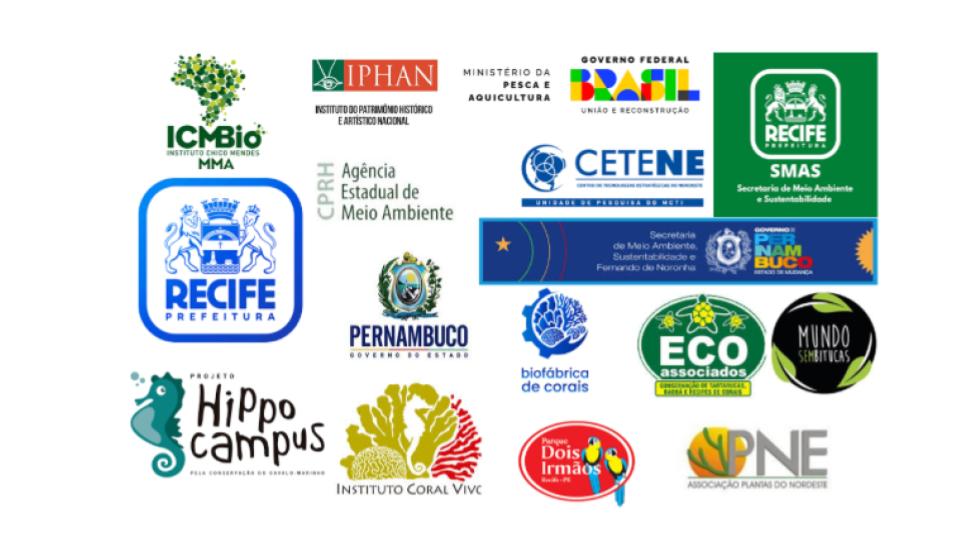
Social Impact Products
As a result of its extension projects, outreach actions, and partnerships with public and private sectors, PPGBio faculty and students have contributed to the development of several social impact products that support public policies and environmental education. These products span the program’s three research lines, with emphasis on biodiversity conservation and environmental issues (Lines 1 and 2), fisheries resource management (Line 3), and environmental education.
Key outcomes include the development of environmental regulations in collaboration with environmental and fisheries departments at the municipal, state, and federal levels; the preparation of threatened species lists (Global – IUCN, National – ICMBio, and State – CPRH); and a state list of exotic species. The program has also contributed to the production of textbooks and educational guides aimed at various education levels. Over the last four years, 17 books and 65 chapters have been published by national publishers, with the participation of 14 permanent faculty members. Many of these works aim to foster environmental education and scientific outreach.
Some of PPGBio’s social impact products stand out as evidence of the program’s and UFRPE’s commitment to the development of the state of Pernambuco and the Northeast region:
-
Monitoring and Inspection Plan for the Most Consumed Fishery Resources in the State of Pernambuco: Developed and executed after the 2019–2020 oil spill that affected the Brazilian Northeast. This plan was a partnership between UFRPE and the state’s Secretariats of Agriculture (funding), Health, and Administration. Coordinated by faculty member Karine Magalhães with participation from Prof. Francisco Marcante, the initiative ran from 2020 to 2021. It played a key role in crisis management, food safety, and future prevention, and is linked to Research Line 3.
-
List of Invasive Exotic Species in the State of Pernambuco: Six faculty members and one alumna of PPGBio are part of the technical group responsible for preparing this list.
-
Fauna: Professors Mauro Melo and alumna Tereza Cristina dos Santos Leal Martins
-
Flora: Professors Ariadne do Nascimento Moura, Jefferson Maciel, Karine Magalhães, Sarah de Souza, and Watson Gama
This list is essential for state-level public policies, national bioinvasion monitoring, and international biodiversity protection policies. It aligns with Research Lines 1 and 2, and various associated research projects.
-
-
Startup Blue Impact (Instagram): Co-founded by PPGBio faculty member Flávia Frédou, Blue Impact aims to balance aquatic resource exploitation with environmental preservation, promoting sustainability and empowering communities, governments, and companies. It is directly related to Research Line 3 and has significant national social and economic impact, given the importance of fisheries in Brazil.
-
Minimuseum of Animal Life (Instagram): A pedagogical space created to foster scientific literacy in science and the environment, with an emphasis on zoology. It receives hundreds of students every semester and organizes traveling exhibitions at schools across Pernambuco. Proposed and coordinated by PPGBio professors Mauro Melo and Carolina Liberal, the museum plays a vital social role by promoting scientific outreach and supporting educational initiatives.
-
E-book: The Plankton Revolt (link): Written by Prof. Mauro Melo, this scientific outreach book in e-book format has had a strong social impact, serving as a tool for education and science communication across various platforms. It is widely shared and used in schools.
